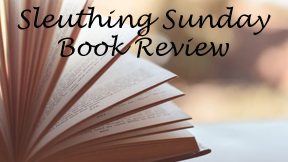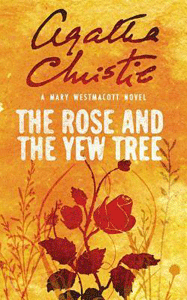Of Agatha Christie’s first four Mary Westmacott novels, the fourth — “The Rose and the Yew Tree” (1948) – is my new favorite. The title comes from a line in a T.S. Eliot poem. It contends that a rose has a short life and a yew tree has a long life, but those lives are of equal value – and of equal “time” from the organism’s internal perspective (because every being only has one perspective, and because time is an artificial construct).
By book’s end, one character represents the rose, one the yew tree. Christie reflects on the nature of time, lifespans and death, delivering a bittersweetness that marks great literature.
Connections and love
Although Christie likely wasn’t thinking in scientific or studious terms, “The Rose and the Yew Tree” explores the Theory of Mind. Some scholars in this field hold that most humans operate as if everyone’s mind operates more or less the same as theirs – but in fact the difference might be greater.

“The Rose and the Yew Tree” (1948)
Author: Agatha Christie, writing as Mary Westmacott
Genres: Politics, romance
Series: Mary Westmacott No. 4
Setting: St. Loo, Cornwall, England, 1948
This is why people struggle to connect – and when they do connect, why it can feel like love. Or indeed, it can “be” love, since love can’t be defined any more than the mind can. The new TV series “The Peripheral” comes to my mind because it features futuristic devices that link minds. As such, characters wonder if they are “tricked” into having bonds with others, including falling in love.
That having been said, Christie doesn’t argue that “misguided” instances of falling in love – when someone loves someone without understanding them — are not true love. After all, if those instances were tossed out, one would have to conclude that most love matches are “false.”
Our POV character in this story set in 1940s coastal England is Hugh Norreys. After a car accident, he’s an invalid, confined to a wheelchair because he can’t walk. Additionally, he’s often in physical pain (an aspect of paralyzed characters that’s often glossed over in fiction).
Norreys sometimes reflects on his planned life with Jennifer that was cut short; he purposely and viciously drives her off so she won’t be saddled with him.
Role of the observer
Living with his brother Robert and sister-in-law Teresa (who are, oddly, not well-developed compared to others), Hugh observes people who visit the estate. Most colorful, charismatic and unlikable (to Hugh – but likable to women, for reasons that confound our narrator) is John Gabriel. In a way, Gabriel is the true main character.
Novice politician Gabriel and his Conservative Party handlers often come through Hugh’s room because a wing of this estate is leased by Party leaders. Gabriel bluntly tells Hugh that Hugh is treated to robust observances of people’s nature because they let their guard down around an invalid – he “doesn’t count.” Hugh appreciates this bit of bluntness from his pseudo-friend.
Christie nicely pairs the Theory of Mind theme with a related theme: a robust exploration of political gamesmanship via this small-town election. In other words: Why do people vote for who they vote for?
“The Rose and the Yew Tree” is the best book about politics I’ve read from her, likely because it’s localized rather than globe-trotting. Although the voters aren’t individualized all that much, the localized setting makes the election’s ebbs and flows personal and concrete. We don’t veer into abstractions like collective consciousness and global movements like we do in, say, “Passenger to Frankfurt.”
All politics are local
With a lot of artists moving to the coast, competing with the established upper class in population, the Conservative Party is in danger of seeing this district swing to the Labour Party. The charismatic, liked-by-women Gabriel desires a political career, so he agrees to run for the seat, and the Conservative Party agrees to let him – they are strange bedfellows, but both stand to gain. Modern readers might see a parallel to the Trump-GOP pact.
Gabriel is in this for personal gain; he has no allegiance to Conservative ideology. It’s a core conflict of the book, but something that will not strike modern readers as unusual. But in the olden days, putting one’s self up for election to Parliament was a moral duty of the upper class; a way of giving something to society – not vice versa. In the original set-up, officeholders were not paid, so it truly was a noble act of voluntarism.
More timeless are the details of Gabriel’s run for office, although the specific notion of a romantic affair hurting a candidate died out around the 1990s. Gabriel befriends a woman whose drunken husband beats her, and this friendship could hurt him in the polls.
But also, Gabriel rescues a drowning kid in a river. He takes this action with political capital in mind. Christie gets at the heart of the absurdities of political gamesmanship: Gabriel does an altruistic act and is punished for it, and does a fake-altruistic act and is rewarded.
Merging themes
“The Rose and the Yew Tree’s” dual themes come together via Isabella, a cousin of the estate’s owners, whom Gabriel loathes because he can’t understand her. She has a rose’s view of life, he is more like a long-viewed yew tree. Isabella is like an open sore Gabriel can’t stop picking at. (Whether Norreys is a rose or a yew tree is arguably the book’s running question.)
Ultimately, this novel is a robust and believable portrait of the two main male characters, but it leaves the female love interest mysterious. This is a common trait of romance stories written by men, but it’s notable here because it’s written by a woman. Isabella’s cipher nature could be a ding against the book.
But arguably, Christie is not going for false mysteriousness; she’s saying that this is how Isabella is. Her simplicity is confounding to the more complex thinkers, but the explanation is simply that: She’s simple. (That’s not to be confused with being dumb, at least in this story.)
Via Hugh, Isabella and Gabriel, “The Rose and the Yew Tree” circles back from its fascinatingly explored themes to a love triangle. It’s here that Christie undercuts the Theory of Mind in a frustrating but perhaps truthful way.
There’s no reason – scientifically or otherwise – that Isabella should love Gabriel or that Hugh should love Isabella (or that Gabriel should be obsessed with Isabella, whom he doesn’t love). But they do anyway, and they all must find ways to live with it.
Sleuthing Sunday reviews an Agatha Christie book or adaptation. Click here to visit our Agatha Christie Zone.


